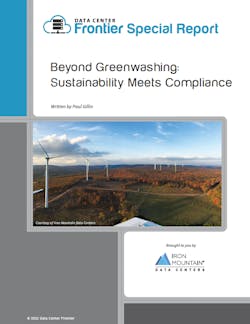The Pros and Cons of Sustainability Certification
This week we conclude our article series on metrics and mechanisms that data center operators can use track progress towards their environmental, social, and corporate governance goals by exploring the pros and cons of sustainability certification.
There are more than 22,000 ISO standards, but only a handful are eligible for certification as management systems. The most popular of these are ISO 9001 and ISO 27001. Organizations can comply with ISO standards without being certified and there are pros and cons to each approach.
ISO does not provide certifications. Those are granted by third parties that have demonstrated compliance with a standard set by ISO’s Committee on Conformity Assessment. There are more than 1,200 ISO-related certification bodies across various industries. They provide documented evidence that a business conforms to the requirements of the latest ISO quality process standards, that processes are effective, and that they are consistent with international best practices. It is important that organizations only engage with third-party assessors that are accredited certification bodies to ensure the integrity and independence of the audit work performed, as well as the validity of an auditor’s credentials.
The benefits of achieving certification include more consistent quality, improved customer satisfaction, and superior process consistency. Organizations can also market certification as a selling point in attracting the largest and most demanding customers.
It is important that organizations only engage with third-party assessors that are accredited certification bodies to ensure the integrity and independence of the audit work performed, as well as the validity of an auditor’s credentials.
The disadvantages of certification are primarily cost and time. Third-party audits typically take place annually and can last for months. Costs vary widely depending on how much external expertise is needed, but they can easily eclipse $50,000 for a mid-sized company with no quality system in place. However, pricing varies by the size of the company and costs can be significantly reduced if a company applying for certification takes on much of the preparation work.
Organizations may choose to comply with ISO standards without seeking certification, but they cannot market compliance as a selling point. Only organizations that are certified by an accredited certification body can advertise that achievement.
Download the entire special report, "Beyond Greenwashing: Sustainability Meets Compliance," courtesy of Iron Mountain Data Centers, for exclusive content on how much sustainability performance data you should publish.



